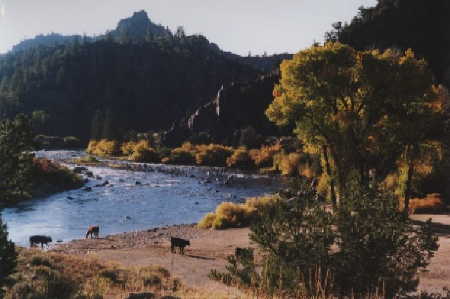
 EXCERPT:
EXCERPT:"The City [New York] concluded that horizontal drilling and high-volume hydraulic fracturing using the current technologies pose an unacceptable threat to the water supply of nine million New Yorkers, and cannot be safely permitted in the watershed," wrote Caswell Holloway, commissioner of New York City’s Department of Environmental Protection. The city encouraged the Science Advisory Board and the EPA "to take a hard look at this activity and to recognize that the absence of contamination does not necessarily imply an activity is safe, but may actually reflect extensive gaps in monitoring information."
Full Article:
A federal study of hydraulic fracturing [1] set to begin this spring is expected to provide the most expansive look yet at how the natural gas drilling process can affect drinking water supplies, according to interviews with EPA officials and a set of documents outlining [2] the scope of the project. The research will take a substantial step beyond previous studies and focus on how a broad range of ancillary activity – not just the act of injecting fluids under pressure – may affect drinking water quality.
The oil and gas industry strongly opposes this new approach. The agency’s intended research "goes well beyond relationships between hydraulic fracturing and drinking water," said Lee Fuller, vice president of government affairs for the Independent Petroleum Association of America in comments [3] (PDF) he submitted to the Environmental Protection Agency.
The "lifecycle" approach will allow the agency to take into account hundreds of reports of water contamination in gas drilling fields across the country. Although the agency hasn’t settled on the exact details, researchers could examine both underground and surface water supplies, gas well construction errors, liquid waste disposal issues and chemical storage plans as part of its assessment.
The EPA begins public hearings today in Washington to nail down the scope of the study.
Plans for the study have attracted international attention and have been the focus of intense debate among lawmakers and the oil and gas industry. The findings could affect Congress’ decision whether to repeal an exemption that shields the fracturing process from federal regulation under the Safe Drinking Water Act......continued......










